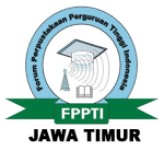Between Reality and the Needs: Responsibilities of Educational Institutions in Developing Archival Science in Indonesia
Unduhan
Background of the study: The requirement of Archivists (archivist and records manager) in Indonesia is not equal to the quantity of graduates produced by educational institutions. In addition 4.0 with the educational requirements and the needs of stakeholders who want graduates from the archival field at the highest level should be accommodated. Therefore, educational institutions are forefront in developing archival science.
Purpose: This study aims to find out how the responsibility of educational institutions in developing the knowledge of the field of archives in Indonesia in the era of information technology
Method: This study uses descriptive qualitative, interviews, and literature studies.
Findings: This study discusses the Efforts of educational institutions to improve the archival science by establishing a higher education program through the mindset of building and synergy with other elements. In addition, educational institution has responsibility in the archival field in Realizing the archival sense.
Conclusion: Archival science more interpreted in a theoretical structure that supports the activities of archival practical, rather than academic disciplines. If the method is applied science, the science of archives will tend to be highly empirical making it a descriptive science. This tendency will make archival science seeks only to gather facts and less attention to the development of the concept as well as demanded by the development of science through a study. To develop scientific archives in Indonesia, the necessary synergy between archival institutions, archival professional associations, educational institutions allied, as well as among students in educational institutions. This must be done with the agreement in the field of archives that apply universally to realize the creation of the organization of archives in Indonesia better.
Unduhan
(1989). Diplomatics: New Uses for an Old Science [Part One]. Archivaria, 28(7).
ANRI. Implementation of the National Archives Still Lacking archivist. (2017, February 7). Retrieved fromhttp://www.anri.go.id/detail/1100-penyelenggaraan-kearsipan-nasional-masih-minim-arsiparis
Asmiyanto, Taufik. (2018). Metamorphosis archivist in the Industrial Age 4.0: A Challenge in the Face of the Digital Revolution, paper presented at the National Seminar Archives Archival Management & Future Archive in the Digital Age, October 10th, 2018, the Faculty of Social and Political Science, University of Bengkulu.
Cooperation Bureau and Public Communication, Ministry of Research, Technology and Higher Education (2018, January 17). Retrieved from https://www.ristekdikti.go.id/siaran-pers/pengembangan-iptek-dan-pendidikan-tinggi-di-era-revolusi-industri-4-0/
Cox, Richard J., Larsen, Ronald L. (2008). iSchools and Archival Studies. Archival Science Journal, 8, 307. doi:https://doi.org/10.1007/s10502-009-9092-3
Duranti, Luciana. (2007). Models of Archival Education: Four, Two, One, or a Thousand ?. Archives & Social Studies: A Journal of Interdisciplinary Research, 1(41).
Effendhie Machmoed. (2017). Looking for Professional Development Archives In Australia: Reflections and Challenges of Archival Profession In Indonesia, paper presented at the National Seminar Archives Archival Studies Program UGM Vocational School, May 10, 2017.
Hickerson, H. Thomas. (2001). Ten Challenges for the Archival Profession. The American Archivist, 64(6). Retieved from http://americanarchivist.org/doi/pdf/10.17723/aarc.64.1.0rg6525nu1437v31?code=SAME-site
Katelaar, Eric. (1980). Archival Training. Paris: UNESCO.
Katuu, Shadrack. (2015). The development of archives and records management education and training in Africa - challenges and opportunities. Archives and Manuscripts, 43(96). doi:https://doi.org/10.1080/01576895.2015.1050677
Law Number 43 Year 2009 on Archives.
Moleong, Lexy J. (2013). Qualitative Research Methodology Revised Edition. Bandung: PT Rosda paper.
Operator. (2016, January 14). Retrived from https://arsip.sv.ugm.ac.id/mata-kuliah
Penyusun. (2018/2019). Retrived from https://www.ut.ac.id/sites/all/files/images/2018/Mei/Katalog-ProgramStudi-Diploma-Sarjana-FE-FHISIP-FMIPA-FKIP-UT-2018-2019.pdf
Randall C., Jimerson. (2010). From the Pacific Northwest to the Global Information Society: The Changing Nature of Archival Education. Journal of Western Archive, 1(1) https://digitalcommons.usu.edu/westernarchives/vol1/iss1/2
Ray Jordan. (2018, August 16). Retrieved from https://news.detik.com/berita/d-4169005/jokowi-universitas-di-indonesia-harus-dobrak-kebiasaan-lama
Santoso, Agus. (2016). Competence urgency Archive Media Literacy Share business. Record and Library Journal. 2(2) Doi:http://dx.doi.org/10.20473/rlj.V2-I1.2016.72-80
Scheurkogel, Hans. (2006). Master What do We Want? Wahat Master do We Need ?. Archival Science Journal, 6, 151. doi:https://doi.org/10.1007/s10502-006-9025-3
Sulistyo Basuki. (2009). Archival Terms Dictionary. Yogyakarta: Canisius.
Suprayitno. (2017). The concept of Foucault and Derrida Archives in Semiotics Perspective: Between Idealism and Reality: Proceedings of the International Seminar of Archives, 15-16 December 2017 (pp.29-52). Yogyakarta: Gadjah Mada University Archives.
Thomassen, T. (2001). Modeling and Remodeling Archival Education and Training. First European Conference for Archival Educators and Trainers. Retrieved from http://www.ica-sae.org/mrconfpaper1.html
Utomo, Djoko. (2017). Indonesia archivists and Human Rights, Between Hope and Reality: Proceedings of the International Seminar of Archives, 15-16 December 2017 (pp.1-28). Yogyakarta: Gadjah Mada University Archives.
Waluyo. (2018).Position, Development, and the Role of Scientific Archives in Indonesia, Paper presented at the National Seminar Archives Archival Strategic Role In Supporting Performance Public and Private Organizations, October 9th, 2018, Archival Studies Program UGM Vocational School.
West, Michael. (1998). Effective Team Work. Yogyakarta: Canisius.
Widodo Bambang P. (2017). Archivist Position in Doing Research, Studies and Development Filing System. Khazanah, 10, 75. doi:https://doi.org/10.22146/khazanah.30080
Zorich, Diane M. (2007). Digital Defining stewardship in the digital age. First Monday, 12(7). doi:https://doi.org/10.5210/fm.v12i7.1927
Record and Library Journal by Unair is licensed under a Creative Commons Attribution-ShareAlike 4.0 International License.
1. The journal allows the author to hold the copyright of the article without restrictions.
2. The journal allows the author(s) to retain publishing rights without restrictions
3. The legal formal aspect of journal publication accessibility refers to Creative Commons Attribution Share-Alike (CC BY-SA).
4. The Creative Commons Attribution Share-Alike (CC BY-SA) license allows re-distribution and re-use of a licensed work on the conditions that the creator is appropriately credited and that any derivative work is made available under "the same, similar or a compatible license”. Other than the conditions mentioned above, the editorial board is not responsible for copyright violation.


 57201398420
57201398420

























